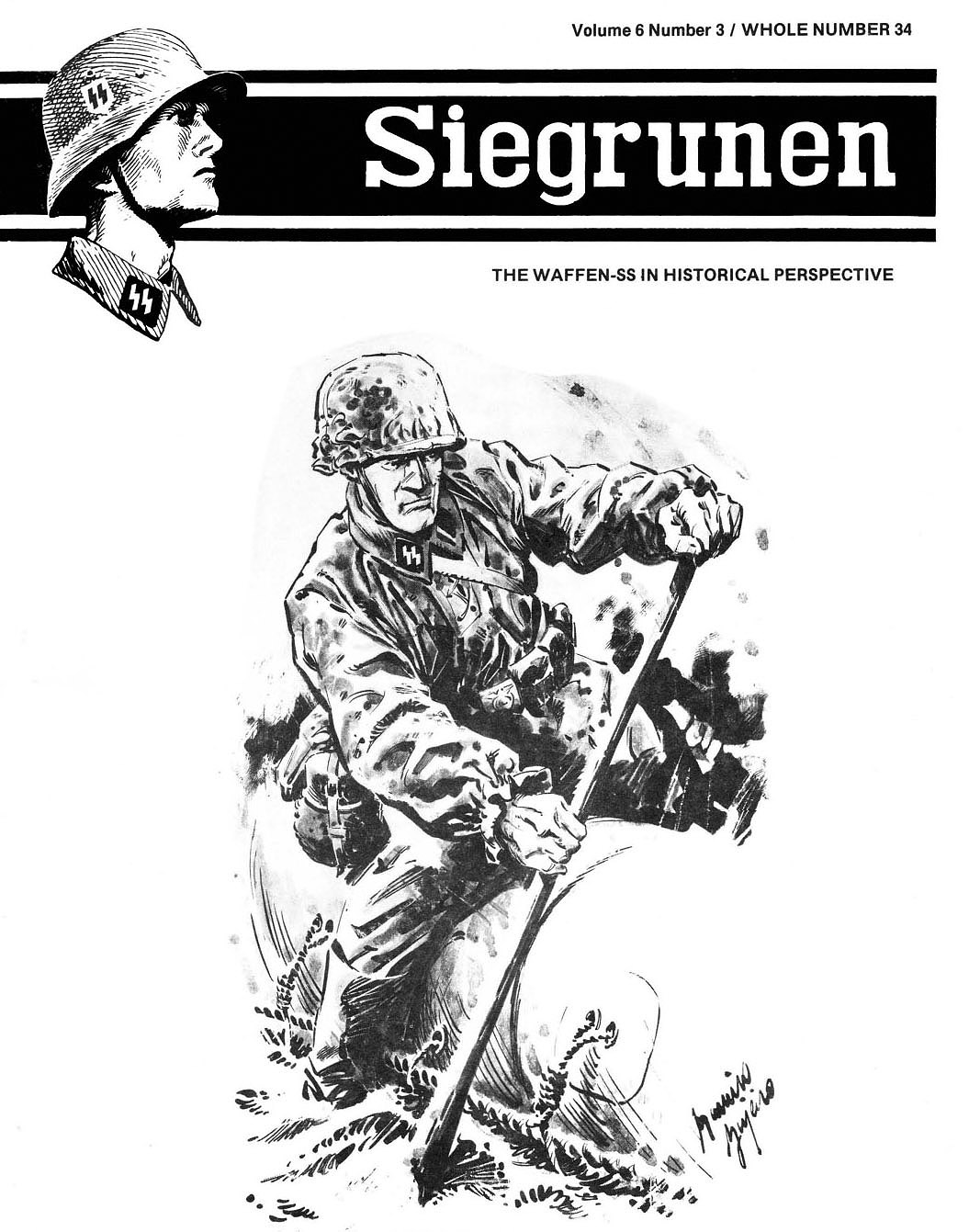
In Memory of a Comrade
In the middle of the year 1945 I became acquainted with the Croatian National Army Divisional commander Leo Rupnik in the English-run POW Camp #215 at Grottaglia, Italy. It was at the beginning of 1944 in Ljubljana, Croatia, during a general deployment of some Ustachi formations with parts of my former unit, the 16th SS Panzergrenadier Div., that I had last seen him.
Many Croations at the time revered the General as a real folk hero; a military personality in scope like Hindenburg was to us and Petain was to the French. Now I saw him again as a prisoner of the English, along with all of us German POWs, still accompanied by his ordnance officer. I can't remember the name of this staff officer, but in POW Camp 215 he always stayed at the side of Gen. Rupnik. Both men were allowed freedom of move - ment around the camp by the English commandant.
The white -bearded old gentleman went about in civilian clothing, while his constant escort still wore the uniform of the Ustachi troops. On my daily way to the German camp administrative office, where I was employed as a translator, I had the opportunity to engage both officers in conversation. My greeting: "Good morning, Herr General," was congenially answered with the query: "Where did you know me, my boy?" From now on I was able to talk with both comrades as we walked along, in German, which they were both familiar with.
General Rupnik proved to be affectionately disposed tpwards this young Unterscharfuehrer, and more and more he became a fatherly friend to me. Most of our political conversations, from the perspective of a POW in 1945, centered upon the anticommunist viewpoints of my companions. The question that we were most concerned with has how to rescue the so-called "evening lands" from the Eastern menace a question that still remains with us today. This was something that the divisional general felt had to be accomplished very quickly before the communist regimes took root. By chance I would be spared returning to a communist ruled country, only because my home was in West Germany.
One day I told the old gentleman that a Yugoslavian extradition attempt had been filed with the English POW Camp administration seeking the return of both Croatian nationalists to Yugoslavia. This filled the General and his escort with great concern; they respected the English and had voluntarily surrendered to them on the grounds that they would be thus protected from Tito's partisans, who had seized Croatia with "Allied" help. A few days later, both Croatian officers failed to appear on their daily walk down the main camp street (which was formerly the runway of a Luftwaffe airfield). My inquiries turned up the information that the men were being held in a disciplinary cage. Here they were kept in a small barbed-wire pen under continuous guard.
A few weeks later, both Croatian nationalists were taken to the gate of the camp with their hands shackled and turned over to communist Tito troops. A wild horde of partially uniformed partisans threw them into a truck . So off they went to an unknown destiny. What went through the minds of these men during the final instant that they looked upon us, their last comrades?
After returning home from captivity, I saw a small notice in my hometown newspaper saying that General Rupnik, because of his collaboration with the Germans, had been sentenced to death by a Yugoslavian court and subsequently executed. Comrade Leo Rupnik-I will not forget you!
--R.M., former SS-Unterscharfuehrer, 16.SS-Div. " RF-SS"